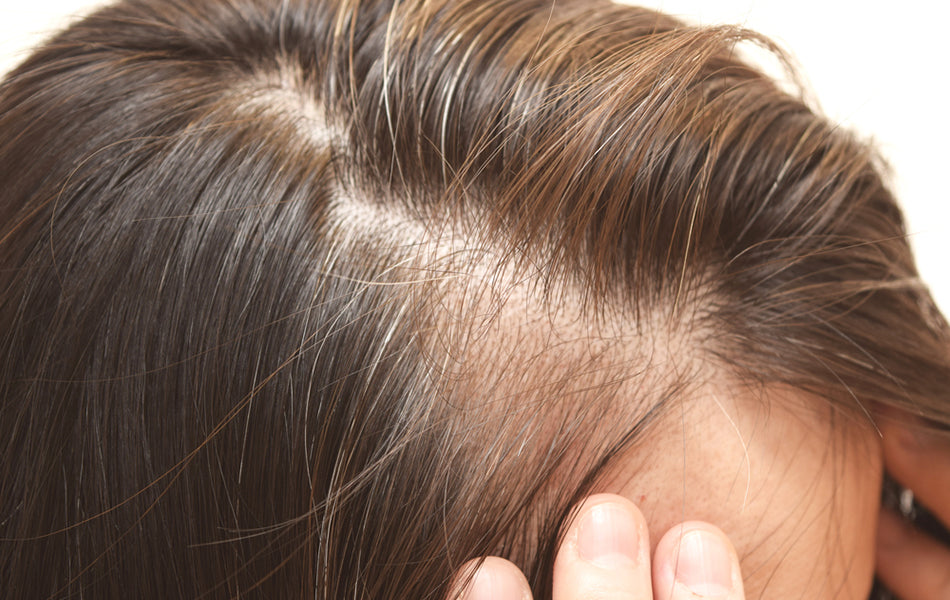
Finasteride is a prescription medication primarily used to treat two conditions:
- Benign Prostatic Hyperplasia (BPH) – A condition in which the prostate gland enlarges, leading to urinary difficulties in men.
- Male Pattern Baldness (Androgenetic Alopecia) – A common form of hair loss in men, particularly affecting the scalp.
Finasteride Dubai works by inhibiting the enzyme 5-alpha reductase, which converts testosterone into dihydrotestosterone (DHT). DHT is a key hormone responsible for both prostate growth and hair loss in genetically predisposed individuals. By reducing DHT levels, finasteride helps shrink the prostate and slow hair loss progression. However, its hormonal effects have led to concerns about potential side effects, particularly sexual dysfunction, including erectile dysfunction (ED).
The Connection Between Finasteride and Erectile Dysfunction:
One of the most debated side effects of finasteride is its potential to cause erectile dysfunction. Several studies and patient reports suggest that some men experience sexual side effects while taking the drug. These effects may include:
- Reduced libido (low sex drive)
- Difficulty achieving or maintaining an erection
- Decreased sexual satisfaction
- Lower semen volume
The reason behind these side effects lies in hormonal changes caused by finasteride. Since testosterone and DHT play significant roles in male sexual function, reducing DHT levels may affect the body’s ability to sustain normal sexual activity.
How Common Is Erectile Dysfunction from Finasteride?
While some men report experiencing ED from finasteride, clinical research suggests that the incidence rate is relatively low. Studies indicate that less than 5% of users experience significant sexual dysfunction. However, the likelihood may vary based on factors such as age, individual hormone levels, and pre-existing conditions.
In many cases, these side effects are temporary and resolve after discontinuing the medication. However, some reports suggest that a subset of users may experience persistent sexual dysfunction, a condition known as post-finasteride syndrome (PFS).
What Is Post-Finasteride Syndrome (PFS)?:
Post-finasteride syndrome (PFS) is a controversial and poorly understood condition characterized by persistent sexual, neurological, and psychological side effects even after stopping finasteride. Symptoms of PFS may include:
- Persistent erectile dysfunction
- Loss of libido
- Depression and anxiety
- Cognitive impairment (brain fog)
- Reduced genital sensitivity
The exact cause of PFS remains unclear, and some researchers question whether it is directly linked to finasteride or influenced by other psychological and physiological factors. Despite the controversy, some men report long-lasting effects, prompting further investigation by medical researchers.
Risk Factors for Finasteride-Related ED:
Not all finasteride users experience erectile dysfunction. However, certain factors may increase the risk:
- Age: Older men may have a higher likelihood of experiencing ED due to natural hormonal changes.
- Pre-existing Sexual Dysfunction: Men with a history of ED or low libido may be more prone to experiencing side effects.
- Dosage: Higher doses of finasteride (e.g., 5 mg for BPH) may increase the risk of sexual side effects compared to the lower 1 mg dose used for hair loss.
- Psychological Factors: Anxiety about potential side effects can sometimes contribute to sexual performance issues, a phenomenon known as the nocebo effect (negative expectations leading to actual symptoms).
Managing and Preventing Erectile Dysfunction While Taking Finasteride:
If you are taking finasteride and experiencing ED, several strategies may help manage the condition:
Monitor Symptoms:
Pay attention to any changes in sexual function after starting finasteride. If symptoms persist, consult your doctor.
Adjust Dosage or Frequency:
Some men find that reducing the dose (e.g., taking finasteride every other day) minimizes side effects while still maintaining hair loss benefits.
Consider Alternative Hair Loss Treatments:
If ED becomes a significant issue, alternatives to finasteride include:
- Minoxidil (Rogaine) – A topical treatment that stimulates hair growth without affecting hormones.
- Low-Level Laser Therapy (LLLT) – A non-invasive treatment that may help with hair regrowth.
- Natural DHT Blockers – Some plant-based supplements, like saw palmetto, claim to reduce DHT with fewer side effects.
Lifestyle Modifications:
Improving overall health can enhance sexual function, regardless of medication use:
- Exercise regularly to boost testosterone levels and improve blood circulation.
- Eat a balanced diet rich in vitamins and antioxidants to support hormonal health.
- Manage stress and anxiety, as psychological factors can impact libido and erectile function.
- Limit alcohol and avoid smoking, as these can contribute to ED.
Use Erectile Dysfunction Treatments:
If finasteride-related ED persists, medications like sildenafil (Viagra) or tadalafil (Cialis) may help restore erectile function. However, always consult a doctor before combining medications.
Should You Stop Taking Finasteride If You Experience ED?
The decision to stop Finasteride UAE depends on the severity of the side effects and personal priorities. If the benefits of preventing hair loss outweigh the drawbacks of mild ED, some men may choose to continue treatment while using supportive therapies. However, if ED significantly affects quality of life, discontinuing the drug may be a better option. Many men notice symptom improvement within weeks to months after stopping finasteride.
Conclusion:
Finasteride is an effective medication for hair loss and prostate enlargement, but it comes with potential sexual side effects, including erectile dysfunction. While most men tolerate the drug well, a small percentage experience persistent issues. The risk of ED varies among individuals, and factors such as age, dosage, and psychological influences can play a role. Before starting finasteride, it is essential to weigh the benefits against the risks and discuss concerns with a healthcare professional. If side effects occur, various strategies, from lifestyle changes to alternative treatments, can help manage or mitigate the impact of ED. Ultimately, the choice to use finasteride should be based on personal health goals and comfort levels with potential side effects.